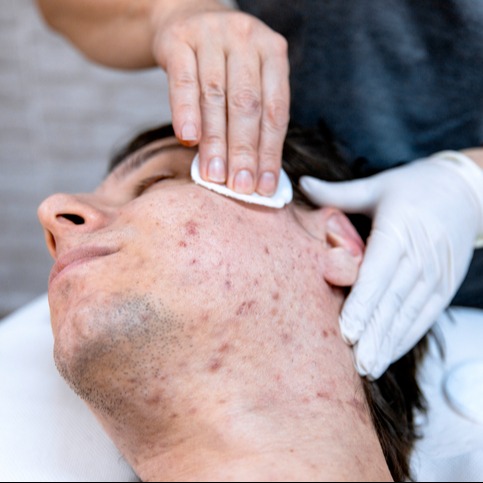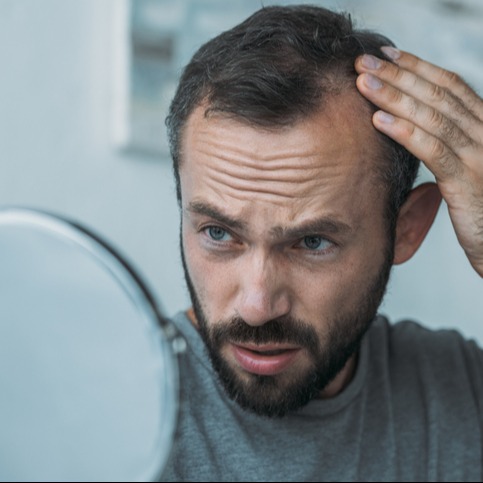
When I discuss acne treatments with patients, many of them ask me about vitamin A-based medications like tretinoin and retinol. I enjoy these discussions because it indicates that patients have taken the time to research their options and have a baseline understanding. An educated patient is the best patient! Remember to consult your healthcare provider after doing your own research on medications.
I am grateful for the opportunity to provide my perspective on vitamin A-based acne medications, so I decided to put my thoughts to paper and write a post about it. I structured the post around patients' most common questions about the differences between tretinoin and retinol.
Are Retinol and Tretinoin the Same Medication?
Retinol and tretinoin are often confused for being the same medication due to their similar effects on the skin. Still, they are distinct compounds with different properties and mechanisms of action. Retinol, a derivative of vitamin A, is a milder over-the-counter form of retinoid that converts to retinoic acid in the skin. It is commonly found in skincare products and is known for its ability to improve skin texture, reduce the appearance of fine lines and wrinkles, and promote collagen production. However, due to its conversion process in the skin, it is not as potent as tretinoin.
On the other hand, tretinoin, a prescription-strength retinoid, directly binds to retinoic acid receptors in the skin, exerting a more potent effect. Also known as retinoic acid, tretinoin is highly effective in treating acne, reducing hyperpigmentation, and improving skin tone and texture. Unlike retinol, tretinoin does not require conversion in the skin to become active, making it more efficient at promoting cell turnover and stimulating collagen synthesis. While both retinol and tretinoin aim to improve skin health, the key distinction lies in their potency and availability, with tretinoin being the more potent option for targeted dermatological concerns.
How Similar are Tretinoin and Retinol?
Tretinoin and retinol both contribute to smoother, more youthful-looking skin. Despite their shared origin and similar benefits, these compounds differ significantly in potency, mechanism of action, and availability. Tretinoin operates by binding to specific receptors in skin cells, accelerating cell turnover, and preventing the formation of comedones. Its high potency and the extensive studies supporting its efficacy make it a powerful solution for treating acne, reducing wrinkles, and enhancing skin texture.
In contrast, retinol, a less potent vitamin A derivative, undergoes conversion to retinoic acid within the skin. While it offers similar benefits as tretinoin, its effects are generally milder and take longer to appear. Retinol is often better tolerated by those with sensitive skin, making it a popular option for individuals seeking anti-aging benefits without the potential irritation associated with prescription-strength retinoids. Despite their differences, both tretinoin and retinol remain cornerstone ingredients in numerous skincare regimens, providing a spectrum of benefits to improve skin health and appearance.
What are the Benefits of Tretinoin vs. Retinol?
Tretinoin is renowned for promoting skin cell turnover, effectively reducing the appearance of fine lines, wrinkles, and acne scars. By stimulating collagen production and accelerating skin cell renewal, tretinoin not only diminishes existing signs of aging but also helps prevent new ones from forming. Additionally, it has proven effective in treating acne by unclogging pores and reducing inflammation, leading to clearer, smoother skin. Its potent effects have made it a staple in numerous dermatological regimens, significantly enhancing skin texture and tone.
Retinol offers benefits similar to tretinoin, though with less intensity. Once applied to the skin, retinol is converted into retinoic acid, promoting cell turnover and collagen synthesis. While its effects may take longer to manifest compared to tretinoin, retinol is celebrated for its gentler approach, making it suitable for individuals with sensitive skin or those who cannot tolerate prescription-strength retinoids. Regular use of retinol can lead to improved skin elasticity, diminished hyperpigmentation, and a more youthful complexion. Thanks to its versatility and accessibility, retinol has become a popular choice in skincare routines, providing users with noticeable improvements in skin texture and appearance through consistent application.
What Are Some Differences Between Tretinoin and Retinol?
Tretinoin directly binds to retinoic acid receptors in skin cells, accelerating cell turnover and promoting collagen production. Its potent formulation makes it highly effective in treating acne, reducing fine lines, and improving skin texture. However, it can also cause irritation, dryness, and sun sensitivity, necessitating careful use and strict adherence to a dermatologist's instructions.
Retinol needs to be converted into retinoic acid within skin cells to be effective. While it is less potent than tretinoin, retinol still significantly benefits by stimulating collagen production, reducing the appearance of wrinkles, and improving skin texture. Its gentler nature makes it suitable for those with sensitive skin or for retinoid beginners, though results may take longer to appear compared to tretinoin. Furthermore, retinol tends to cause less irritation and is more forgiving in terms of sun sensitivity, making it a popular option for individuals looking to incorporate a retinoid into their skincare routine without requiring a prescription.
What Are the Side Effects of Tretinoin and Retinol?
Tretinoin is notorious for causing skin irritation, particularly during the initial stages of use. Common side effects include redness, peeling, dryness, and increased sensitivity to sunlight. While these symptoms often diminish as the skin adapts to the medication, they can be bothersome for some individuals. Additionally, tretinoin may lead to a temporary worsening of acne, known as the "purge," as it accelerates the skin's cell turnover rate, bringing underlying impurities to the surface.
Retinol typically produces fewer side effects compared to tretinoin. However, it can still cause irritation, especially in individuals with sensitive skin. Common side effects of retinol use include redness, peeling, and mild stinging sensations. These symptoms are usually mild and transient, resolving as the skin adjusts to the product. Despite its milder nature, retinol can also increase photosensitivity, making it essential for users to apply sunscreen diligently to protect their skin from harmful ultraviolet rays. While both tretinoin and retinol offer remarkable benefits for skin health and appearance, it is crucial for users to be aware of the potential side effects and to use these products as directed by a healthcare professional to minimize any adverse reactions.
Please consult a licensed healthcare professional if you have any questions or concerns about acne and its treatment.
Sources
Rittié, L., & Fisher, G. J. (2015). Natural and sun-induced aging of human skin. Cold Spring Harbor perspectives in medicine, 5(1), a015370. https://doi.org/10.1101/cshperspect.a015370
Mukherjee, S., Date, A., Patravale, V., Korting, H. C., Roeder, A., & Weindl, G. (2016). Retinoids in the treatment of skin aging: an overview of clinical efficacy and safety. Clinical interventions in aging, 1, 327–348. https://doi.org/10.2147/CIA.S93081
Del Rosso, J. Q., & Kircik, L. (2022). Understanding the Role of Retinoids in Acne: New Insights. American journal of clinical dermatology, 23(5), 293-303. https://doi.org/10.1007/s40257-022-00668-1
Fischer, A., Kong, S. N., Whitehead, R. A., Datta, S., & Kang, S. (2016). Acne in women: Review of the clinical spectrum. Cutis; cutaneous medicine for the practitioner, 97(6), 256–264. PMID: 27386050.
Truchuelo, M. T., Jiménez, N., Jaén, P. (2022). Review of the use of Retinoids in Cutaneous Aging: Analysis of the evidence and implications for practice. American Journal of Clinical Dermatology, 23(3), 349-360. https://doi.org/10.1007/s40257-022-00699-8
Levin, M. (n.d.). Retinol vs. Tretinoin: What’s the Difference? Healthline. Retrieved from https://www.healthline.com/health/beauty-skincare/retinol-vs-tretinoin
Curology Team. (n.d.). Ask Curology: Tretinoin vs. Retinol. Curology. Retrieved from https://curology.com/blog/ask-curology-tretinoin-vs-retinol/
 Medically reviewed by
Medically reviewed by 





